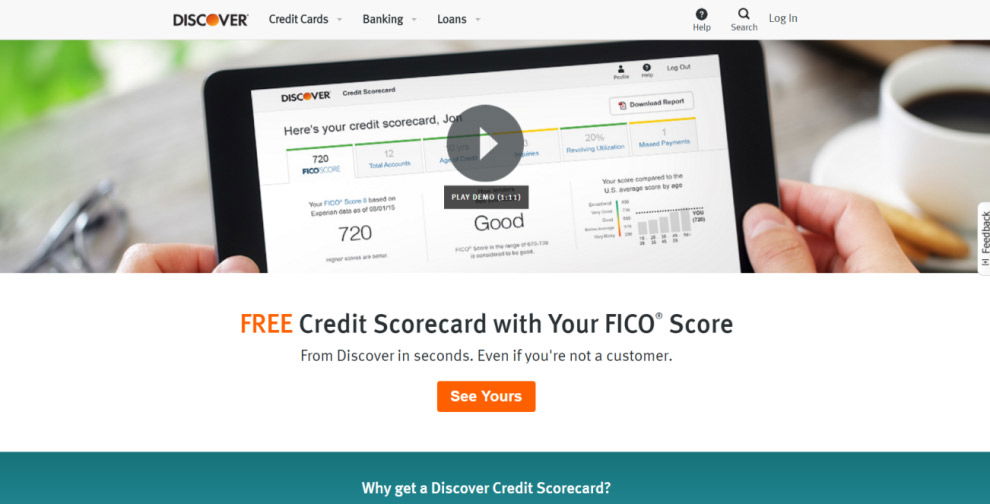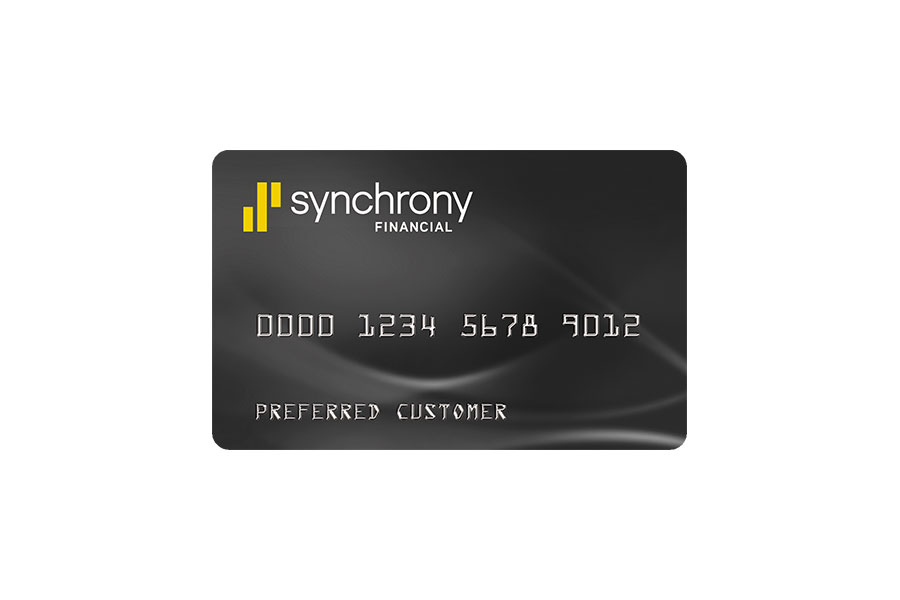It’s easy to get your credit reports for free. In fact, you can get a free credit report from each credit bureau every 12 months. But, unfortunately, your credit history does not include your credit score. It only contains the financial information that contributes to it.

Several websites, like Credit Karma and Credit Sesame, offer free credit scores, but they don’t use the FICO credit scoring models. And since the FICO score is the one used by most lenders in the country, it’s the one you’ll want to pay close attention to.
A less popular alternative is VantageScore 3.0, which is calculated by all three major credit bureaus and is increasingly used by financial institutions.
But unless you pay for your FICO score or VantageScore, it’s difficult to get an accurate view of your credit score.
How to Get Your FICO Score for Free
Many credit card companies now offer free access to your FICO score, often paired with credit monitoring tools to help you manage your financial health. If your current card doesn’t provide this benefit, it might be worth exploring other options that fit your financial goals while including this valuable feature.
You don’t need to carry a balance to access these perks—using your credit card responsibly allows you to track your credit score without incurring debt. Look for cards that match your spending habits, whether you’re focused on rewards, low interest rates, or specific benefits, and take advantage of the added FICO score access to stay informed about your credit.
Top Credit Cards Providing Free FICO Scores
Here is a comprehensive list of major credit card issuers that offer a free FICO scores. In addition, you’ll find out what type of credit card you need, and whether general bank membership is enough to qualify.
| Credit Card Issuer | Who Can Access |
| American Express Offers FICO score to cardholders. Compares your current credit score to your previous month’s score, and shows what category you’re in. | Cardholders |
| Bank of America Gives cardholders their TransUnion scores from FICO. It shows you the trend of your recent FICO scores and how you compare to others nationally. You can see what is influencing your credit score and get notifications when your updated score is available. | Cardholders |
| Barclaycard US Also uses your TransUnion FICO score. You’ll receive an email alert whenever your score changes, plus information on why it has changed. | Cardholders |
| Chase Provides FICO 8 scores using your Experian credit report. In addition to your FICO score, you’ll get an analysis of why your score is at that number, plus information on how you can improve your credit score. | Slate Cardholders |
| Citi Get your FICO score using information from your Equifax credit report. Provides a helpful chart with your credit score that shows how lenders interpret different credit score ranges. | Certain Account Holders |
| Commerce Bank Your FICO credit score is included on every monthly statement, along with why you scored that way and tips on improving your score. It also shows you how your score could potentially affect rates and terms. | Cardholders |
| Discover Comes from your TransUnion credit report. You’ll receive your free FICO score and Credit Scorecard on your monthly statement and can also access it online. There you’ll also see the two most significant factors affecting your credit. | Anyone |
| First Bankcard You’ll get monthly access to your FICO 8 Bankcard Score, which is what banks use to analyze their customers. You can access your credit information online, where you’ll also see the major contributing factors to your FICO score. | Cardholders |
| Navy Federal Credit Union NFCU offers its primary cardholders a free FICO score. You can view your score online or on the credit union’s mobile app. Using TransUnion Vantage 3 model, these scores are updated monthly. | Cardholders |
| Walmart Credit Card In addition to your monthly FICO score, you’ll also see the top two reasons impacting your number. Free service for those enrolled in online statements. | Cardholders Enrolled in E-Statements |
| Wells Fargo Currently offered to credit cardholders, and will soon include anyone with any line of credit with Wells Fargo, including a mortgage, car loan, student loan, or personal loan. Your free FICO score is offered through the bank’s app on your smartphone or tablet. | Anyone with a Consumer Credit Account |
Credit Cards Providing Alternative Free Credit Score Services
While the following credit card issuers may not provide FICO scores, they offer access to other respected credit score models. These alternative scoring systems still give valuable insights into your credit health, helping you to stay informed and manage your finances effectively.
| Credit Card Issuer | Who Can Access |
| Capital One (VantageScore 3.0) Capital One’s free credit monitoring tool is called CreditWise. Anyone can create an account to log on and access their credit score, either online or through the smartphone app. | Anyone |
| Credit One Bank The Credit One Bank Visa with Free Credit Score Access gives you free access to your Experian credit score and credit report summary online. This credit card is available to consumers with bad credit. | Cardholders |
| U.S. Bank (Experian) Cardholders get automatic access when they log into their accounts online. | Cardholders |
| USAA Bank (VantageScore 3.0) Both bank members and credit cardholders receive daily credit monitoring from Experian. You can see your current credit score as well as past scores, and you’ll get regular credit alerts on any changes. | Members |
Differences Between FICO and Other Credit Scores
FICO scores dominate lending decisions, with over 90% of lenders using them to evaluate creditworthiness. While VantageScore is another popular model, it’s designed to broaden access to credit by incorporating additional factors, like utility and rent payments, and working with shorter credit histories.
FICO’s reliability and long-standing reputation make it the go-to for major lenders, especially for mortgages and auto loans. In contrast, VantageScore is more commonly used by financial apps and some credit card issuers for monitoring purposes.
To better understand how lenders view your credit, focus on tracking your FICO score—it’s the one most likely to influence your loan approvals and terms.
Why Your Credit Scores May Differ Across Reports
Even with the same scoring model, like FICO or VantageScore, your credit scores can vary. This happens because each of the three credit bureaus—Equifax, Experian, and TransUnion—collects slightly different financial data. Some creditors report to all three bureaus, while others may only report to one or two.
Lenders often check all three scores to get a full picture of your credit history. They typically use the middle score to determine loan terms. For joint applications, the lender usually goes with the lower middle score, so if yours is 680 and your spouse’s is 625, they’ll base the terms on the 625.
Effective Strategies to Boost Your FICO Score
Improving your FICO score starts with understanding the key factors that influence it. By focusing on these areas, you can make steady progress toward better financial health.
Pay Your Bills on Time
Your payment history has the biggest impact on your FICO score. Consistently making on-time payments shows financial responsibility. If you’ve had any missed or late payments in the past, work on catching up as soon as possible to prevent further damage to your score.
Keep Your Credit Utilization Low
Your credit utilization ratio—the amount of credit you’re using compared to your total credit limit—plays a significant role in your score. Aim to use less than 30% of your available credit, and if possible, pay down high-interest balances first to see quicker improvements.
Review and Dispute Errors on Your Credit Report
Mistakes on your credit report can hurt your score. Check your reports regularly for errors and dispute any inaccuracies with the credit bureaus. Correcting even one mistake could result in a noticeable score boost.
Consider Professional Credit Repair Services
If tackling credit issues feels overwhelming, credit repair services can help. These professionals handle disputes and negotiations on your behalf, saving you time and effort while addressing multiple credit challenges.
Monitor Your Credit Consistently
Regularly checking your credit score helps you stay on track. Many banks and credit unions offer free credit monitoring, making it easier to spot potential problems early and maintain good financial habits.
Use Available Resources for Credit Management
Leverage educational tools and resources to better understand your credit. Whether it’s online guides, apps, or professional advice, these tools can help you take control of your finances and develop a clear plan to improve your credit score.
By focusing on these strategies, you can strengthen your credit profile and unlock better opportunities for loans, credit cards, and other financial benefits.
Conclusion
Keeping tabs on your FICO score is one of the smartest ways to stay on top of your financial health. With so many credit cards offering free FICO scores, you don’t have to pay extra to access this valuable information. These tools let you monitor your progress, spot any issues early, and take steps to improve your credit over time.
Whether you’re aiming for lower interest rates, better loan terms, or simply a stronger credit profile, knowing your score puts you in control. By using the resources available, you can make informed decisions that lead to more financial freedom and opportunities.




